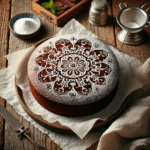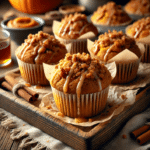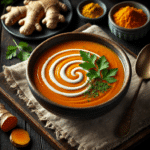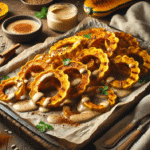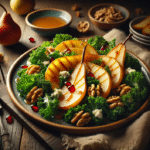Probiotics Unveiled: Illuminating Their Precise Impact on the Immune System
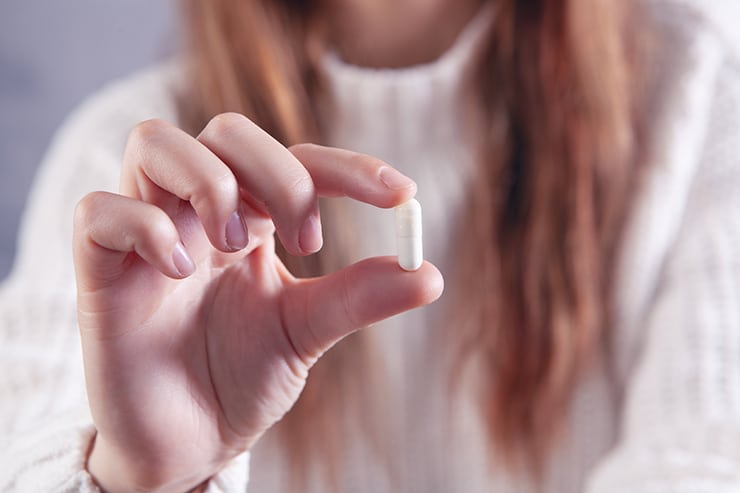
Did You Know?
- It’s best to stop thinking that probiotics ‘feed’ the bacteria in your GI tract.
- When you think probiotics, think immune support, reduction of GI permeability, prevention of pathogens from binding to the GI lining and supporting mental well-being.
- Supplemental probiotics are transient – they are simply visitors passing through. Once stopped, supplemental probiotics will clear your system within 7-10 days.
- Yes, even with Small Intestinal Bowel Overgrowth (SIBO) – probiotics are beneficial.
- Microbiome refers to all microbes living in and on us.
- Microbiota refers to the microbes living in our intestinal tracts.
Probiotics, often referred to as “good bacteria,” have emerged as a groundbreaking frontier in healthcare due to their ability to profoundly influence gut health. However, their impact extends beyond simply supplying a bacteria substrate to the gut microbiota; they play a crucial role in supporting the immune system as a whole. In part six in our series: exploring immune-boosting supplements for fall wellness – let’s explore the intricate mechanisms by which probiotics exert their effects first on gut immunity, and then on the body as a whole.
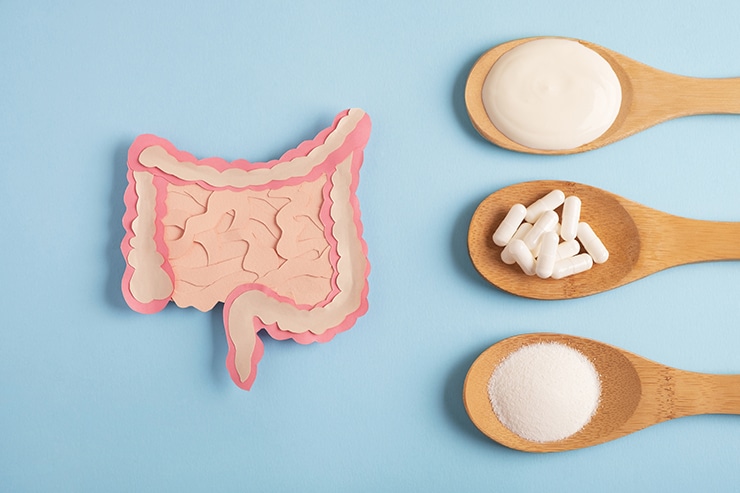
Probiotics and Gut-Immune Function
At the heart of elderberry’s immune-boosting prowess lies a group of plant compounds known as flavonoids, with anthocyanins taking center stage. These vibrant pigments contribute to the deep purple hue of elderberries and play a crucial role in its health benefits. Anthocyanins possess potent antioxidant properties that combat oxidative stress and neutralize harmful free radicals [1]. By reducing oxidative damage to cells and tissues, anthocyanins indirectly support the immune system by preserving cellular integrity and vitality.
Immune Cell Activation: Strengthening Defenses
At the heart of probiotics’ immune-boosting potential lies the gut-immune axis, a complex network that links the gut microbiota with various components of the immune system. This axis thrives on communication, with probiotics acting as messengers that relay critical information between the gut and immune cells. This communication fosters the production of immune-regulating molecules, such as cytokines and antibodies, which orchestrate the body’s defense mechanisms. By modulating the gut environment, probiotics contribute to the fine-tuning of immune responses, ensuring a balanced reaction to threats and preventing overreactions that could lead to chronic inflammation or autoimmune disorders.
Probiotics interact with immune cells, such as dendritic cells, macrophages, and T cells, in the gut-associated lymphoid tissue (GALT). These interactions can lead to the promotion of anti-inflammatory responses, the enhancement of regulatory T cell activity, and the suppression of pro-inflammatory pathways [1][2].
Barrier Function Enhancement
Probiotics reinforce the integrity of the gut lining by promoting the synthesis of tight junction proteins that maintain the physical barrier between the intestinal epithelial cells. This reinforcement prevents the translocation of harmful bacteria or antigens into the bloodstream, reducing the risk of systemic immune activation and inflammation [3][4]. By preserving the integrity of these barriers, probiotics ensure that the immune system can focus on combating external threats rather than dealing with breaches in defense.
Production of Immunomodulatory Molecules
Probiotics can produce bioactive molecules such as short-chain fatty acids (SCFAs) through the fermentation of dietary fibers. SCFAs play a pivotal role in maintaining gut homeostasis by fostering the growth of beneficial bacteria, supporting mucosal integrity, and modulating immune responses [5][6].
Regulation of T Helper Cells
Probiotics influence the balance between different T helper (Th) cell subsets in the gut. For instance, they may promote the differentiation of regulatory T cells (Tregs), which suppress excessive immune responses and maintain tolerance to harmless antigens [7][8].
Cytokine and Chemokine Regulation
Cytokines are small signaling molecules that play a crucial role in regulating immune responses. Probiotics can modulate the production and activity of cytokines, thereby enhancing the immune response.
Studies suggest that certain probiotic strains have the potential to stimulate the production of anti-inflammatory cytokines, such as interleukin-10 (IL-10), while reducing the levels of pro-inflammatory cytokines, such as tumor necrosis factor-alpha (TNF-alpha) and interleukin-6 (IL-6). This balance is essential for maintaining a controlled immune response and preventing chronic inflammation, which is linked to various immune-related disorders [9][10][11].
Additionally, probiotics can influence the differentiation and activity of immune cells by interacting with cytokines. For instance, probiotics can enhance the production of regulatory T cells (Tregs), which help suppress excessive immune responses and maintain immune tolerance. Moreover, probiotics have been shown to enhance the activity of natural killer (NK) cells, which play a crucial role in eliminating infected cells and preventing the spread of pathogens.
By modulating cytokine production and immune cell activity, probiotics can promote a balanced and efficient immune response. This immune-enhancing potential of probiotics has led to their exploration as potential adjunct therapies in various immune-related conditions, ranging from allergies and autoimmune diseases to infections. However, it’s important to note that the effects of probiotics on cytokines can be strain-specific, and further research is needed to fully understand the intricate mechanisms underlying their immune-modulating properties.Top of Form
Probiotics: The Feel Good Supplement
Research shows that certain probiotic strains can influence the production of neurotransmitters, the chemical messengers that regulate mood, behavior, and cognitive function. Probiotics residing in the gut can interact with the gut-brain axis, a bidirectional communication network connecting the gut and the brain. This interaction prompts the gut to produce neurotransmitters such as serotonin, dopamine, and gamma-aminobutyric acid (GABA), which have a profound impact on mood and mental well-being [12]. By modulating the gut microbiota composition, probiotics may contribute to a balance of neurotransmitter production, potentially influencing emotional states and cognitive processes. This intricate connection between probiotics and neurotransmitters unveils a novel dimension of their potential impact on overall health and highlights the captivating interplay between the gut and the brain.
These mechanisms collectively highlight the intricate ways in which probiotics interact with the immune system within the gastrointestinal tract, fostering a balanced and harmonious response to both internal and external challenges.
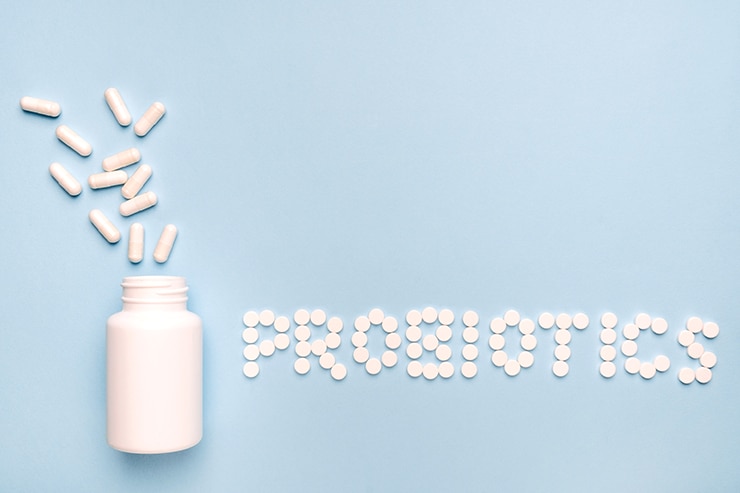
Probiotics and SIBO
Choosing the most effective probiotics for individuals with Small Intestinal Bacterial Overgrowth (SIBO) requires careful consideration of specific probiotic strains and their potential impacts on the condition. Here are a few probiotic strains that have been studied for their potential benefits in SIBO management:
- Lactobacillus Plantarum: This probiotic strain has been investigated for its ability to inhibit the growth of pathogenic bacteria and promote a balanced gut microbiota [13]. It may help alleviate symptoms of SIBO by restoring gut microbial balance and reducing gas production.
- Bifidobacterium Infantis: Bifidobacterium infantis is known for its anti-inflammatory properties and its role in maintaining gut health [14][15]. It may help regulate gut motility and improve symptoms commonly associated with SIBO, such as bloating and irregular bowel movements.
- Saccharomyces Boulardii: Although not a bacterial probiotic, Saccharomyces boulardii is a beneficial yeast that has been studied for its potential in managing SIBO [16]. It can help modulate the gut immune response and improve gut barrier function. It also helps calm acute and chronic diarrhea.
- Lactobacillus GG (Lactobacillus Rhamnosus GG): This strain is well-known for its ability to support gut health and immune function [17]. It has been researched for its potential role in addressing gastrointestinal issues, including those associated with SIBO.
- Streptococcus Thermophilus: This probiotic strain may contribute to gut health by promoting the growth of beneficial bacteria and enhancing the digestion of lactose, which can be problematic for some individuals with SIBO [18].
- Bacillus Coagulans: Is a robust spore-forming probiotic, that has gained attention for its potential role in addressing Small Intestinal Bacterial Overgrowth (SIBO). This strain’s resilience through the digestive tract allows it to potentially restore microbial balance disrupted in SIBO. Some studies suggest that Bacillus coagulans might inhibit the growth of pathogenic bacteria contributing to SIBO, aiding symptom relief [19]. It’s also been shown to improve long-term normalization of lactulose breath testing. Plus, GI symptoms including belching, flatulence and diarrhea all significantly improved [20].
Probiotic Dosing
Most probiotics are taken at 1 capsule daily.
Change up your probiotic every six months.
Take one month off a year.
If your system is more sensitive to trialing supplements, you may open the capsule and tap a little out into food (that isn’t hotter than room temperature) and build your dosing from there.
Here are my five favorite supplements:
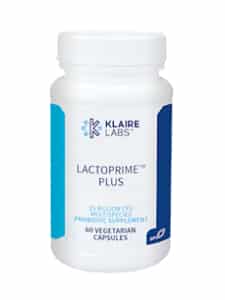 |
Lactoprime Plus, Klaire Labs |
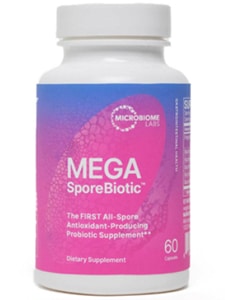 |
MegasporeBiotic, Microbiome Labs |
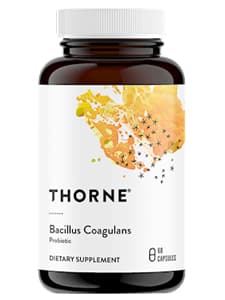 |
Bacillus Coagulans, Thorne |
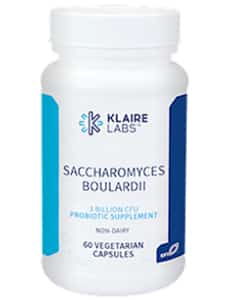 |
Saccharomyces Boularddi, Klaire Labs |
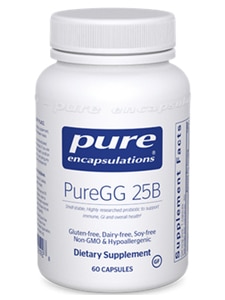 |
PureGG 25 Billion, Pure Encapsulations |
It’s important to note that individual responses to probiotics can vary, and the effectiveness of a specific strain may depend on the unique circumstances of each person. When considering probiotic supplements for SIBO, it’s recommended to consult a healthcare professional, particularly one with expertise in gut health, to determine the most suitable strains, dosages, and duration of use based on your specific condition and needs.
- Vighi, G., Marcucci, F., Sensi, L., Di Cara, G., & Frati, F. (2008). Allergy and the gastrointestinal system. Clinical & Experimental Immunology, 153(S1), 3-6.
- Isolauri, E., Sütas, Y., Kankaanpää, P., Arvilommi, H., & Salminen, S. (2001). Probiotics: effects on immunity. The American Journal of Clinical Nutrition, 73(2), 444s-450s.
- Anderson, R. C., Cookson, A. L., McNabb, W. C., Park, Z. A., & McCann, M. J. (2010). Lactobacillus plantarum DSM 2648 is a potential probiotic that enhances intestinal barrier function. FEMS Microbiology Letters, 309(2), 184-192.
- Resta-Lenert, S., & Barrett, K. E. (2003). Probiotics and commensals reverse TNF-α-and IFN-γ-induced dysfunction in human intestinal epithelial cells. Gastroenterology, 130(3), 731-746.
- den Besten, G., van Eunen, K., Groen, A. K., Venema, K., Reijngoud, D. J., & Bakker, B. M. (2013). The role of short-chain fatty acids in the interplay between diet, gut microbiota, and host energy metabolism. Journal of Lipid Research, 54(9), 2325-2340.
- Koh, A., De Vadder, F., Kovatcheva-Datchary, P., & Bäckhed, F. (2016). From dietary fiber to host physiology: short-chain fatty acids as key bacterial metabolites. Cell, 165(6), 1332-1345.
- Round, J. L., & Mazmanian, S. K. (2010). Inducible Foxp3+ regulatory T-cell development by a commensal bacterium of the intestinal microbiota. Proceedings of the National Academy of Sciences, 107(27), 12204-12209.
- Kwon, H. K., Lee, C. G., So, J. S., Chae, C. S., Hwang, J. S., Sahoo, A., … & Lee, S. H. (2010). Generation of regulatory dendritic cells and CD4+ Foxp3+ T cells by probiotics administration suppresses immune disorders. Proceedings of the National Academy of Sciences, 107(5), 2159-2164.
- Bäumler, A. J., & Sperandio, V. (2016). Interactions between the microbiota and pathogenic bacteria in the gut. Nature, 535(7610), 85-93.
- van Baarlen, P., Troost, F., van der Meer, C., Hooiveld, G., Boekschoten, M., Brummer, R. J., & Kleerebezem, M. (2011). Human mucosal in vivo transcriptome responses
- Plaza-Díaz, J., Ruiz-Ojeda, F. J., Gil-Campos, M., & Gil, A. (2019). Mechanisms of action of probiotics. Advances in Nutrition, 10(Suppl_1), S49-S66. This review article discusses various mechanisms through which probiotics influence the immune system, including the modulation of cytokines.
- Bravo, J. A., Forsythe, P., Chew, M. V., Escaravage, E., Savignac, H. M., Dinan, T. G., … & Cryan, J. F. (2011). Ingestion of Lactobacillus strain regulates emotional behavior and central GABA receptor expression in a mouse via the vagus nerve. Proceedings of the National Academy of Sciences, 108(38), 16050-16055. doi:10.1073/pnas.1102999108
- Sarkar, A., Lehto, S. M., Harty, S., Dinan, T. G., Cryan, J. F., & Burnet, P. W. (2016). Psychobiotics and the Manipulation of Bacteria–Gut–Brain Signals. Trends in Neurosciences, 39(11), 763-781. doi:10.1016/j.tins.2016.09.002
- Plaza-Díaz, J., Ruiz-Ojeda, F. J., Gil-Campos, M., & Gil, A. (2019). Mechanisms of action of probiotics. Advances in Nutrition, 10(Suppl_1), S49-S66. doi:10.1093/advances/nmy063
- O’Toole, P. W., & Cooney, J. C. (2008). Probiotic bacteria influence the composition and function of the intestinal microbiota. Interdisciplinary Perspectives on Infectious Diseases, 2008, 175285. doi:10.1155/2008/175285
- Kelesidis, T., & Pothoulakis, C. (2012). Efficacy and safety of the probiotic Saccharomyces boulardii for the prevention and therapy of gastrointestinal disorders. Therapeutic Advances in Gastroenterology, 5(2), 111-125. doi:10.1177/1756283X11428502
- Isolauri, E., Kirjavainen, P., Salminen, S., & Probiotics. (2002). A role in reducing the risk and severity of atopic disease. Allergy, 57(11), 1071-1079. doi:10.1034/j.1398-9995.2002.23405.x
- Fåk, F., Bäckhed, F., & Nielsen, J. (2015). Uptake of dietary lactose by the gastrointestinal mucosa. Gastroenterology, 148(2), 369-373. doi:10.1053/j.gastro.2014.10.003
- Dolin, B. J. (2009). Effects of a proprietary Bacillus coagulans preparation on symptoms of diarrhea-predominant irritable bowel syndrome. Methods and Findings in Experimental and Clinical Pharmacology, 31(10), 655-659.
- Bijkerk CJ, de Wit NJ, Stalman WA, Knottnerus JA, Hoes AW, Muris JW. Irritable bowel syndrome in primary care: the patients’ and doctors’ views on symptoms, etiology and management. Can J Gastroenterol. 2003 Jun;17(6):363-8; quiz 405-6. doi: 10.1155/2003/532138. PMID: 12813601.
Enjoying this content? Sign up for updates... It's FREE!



